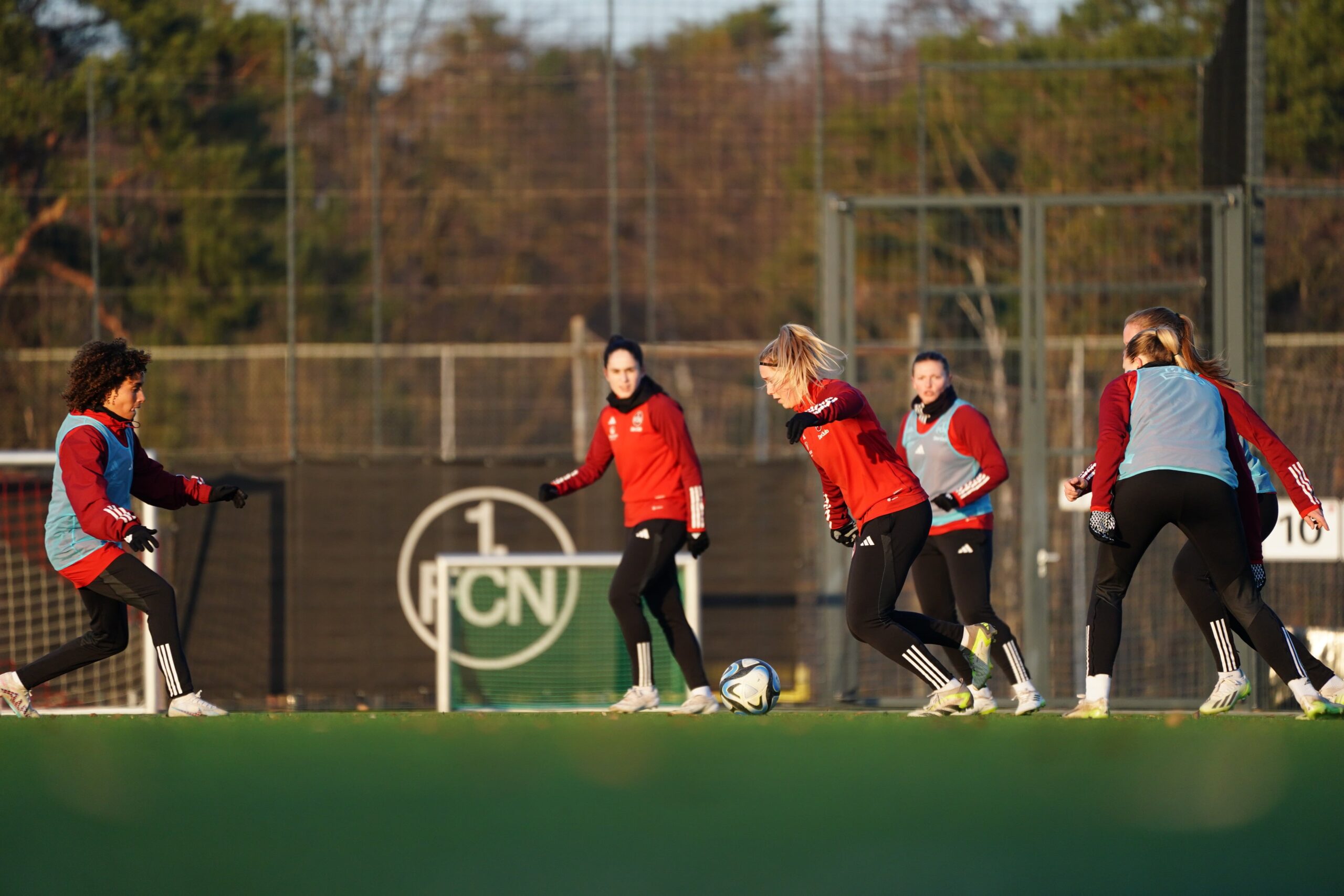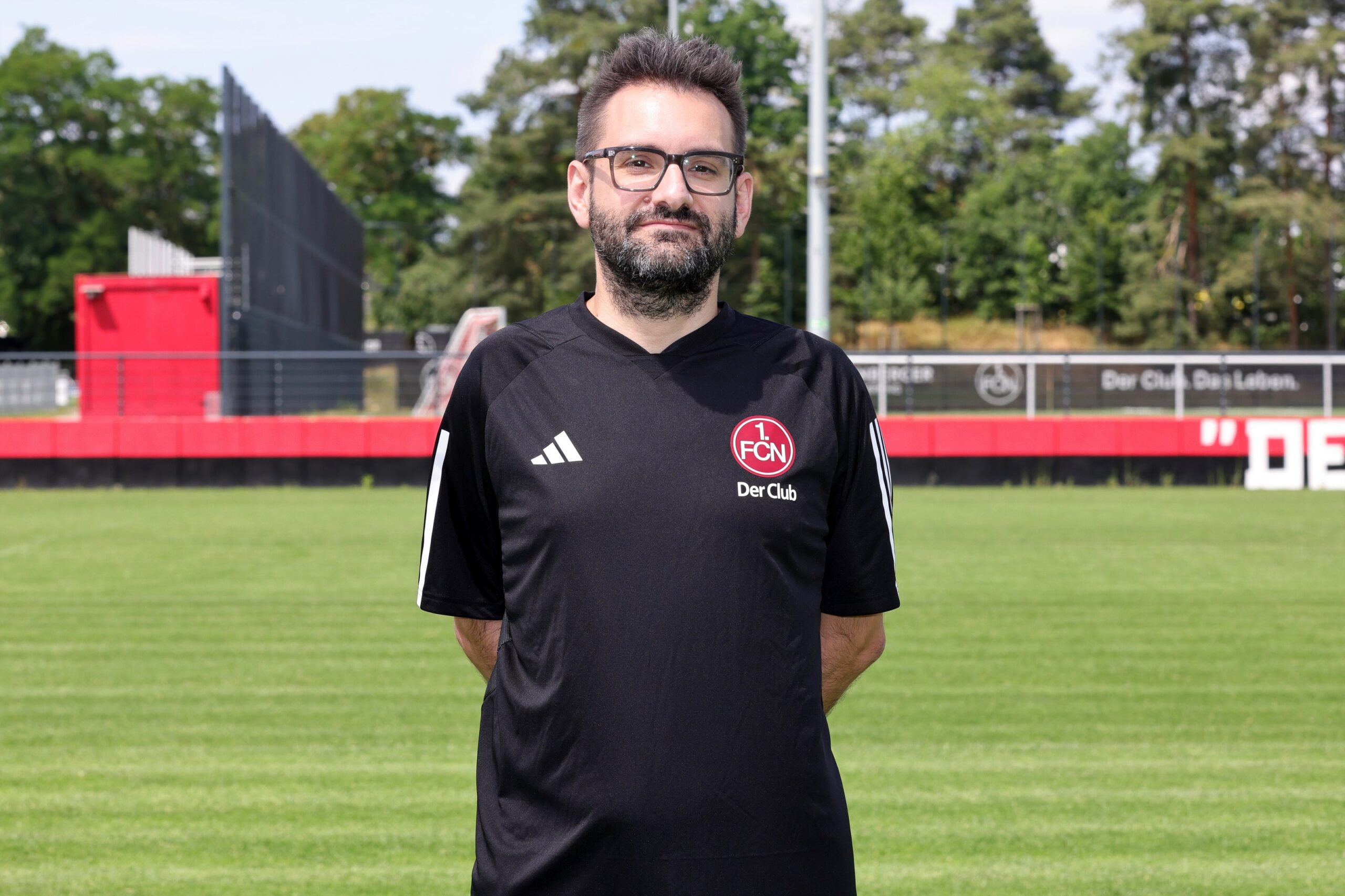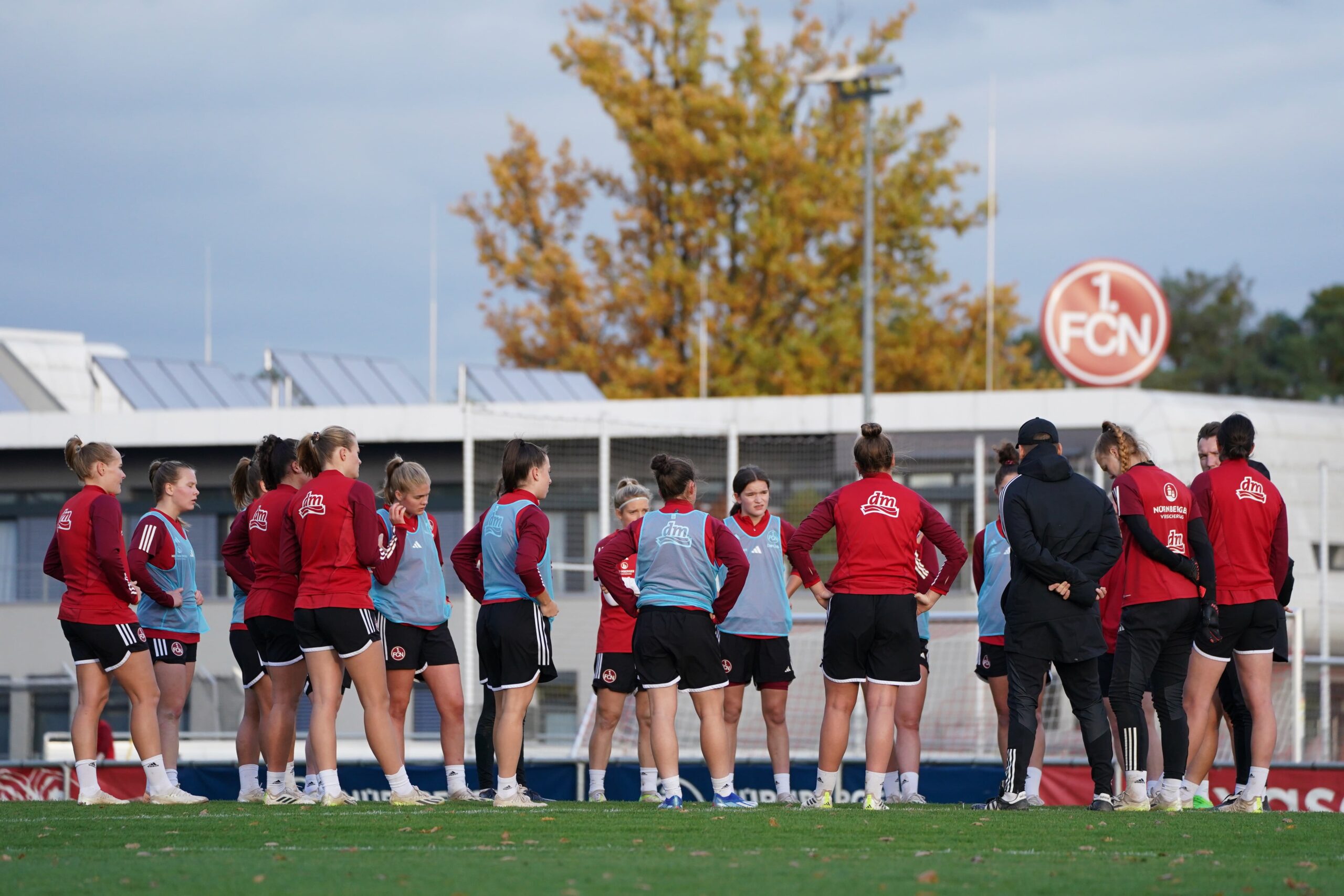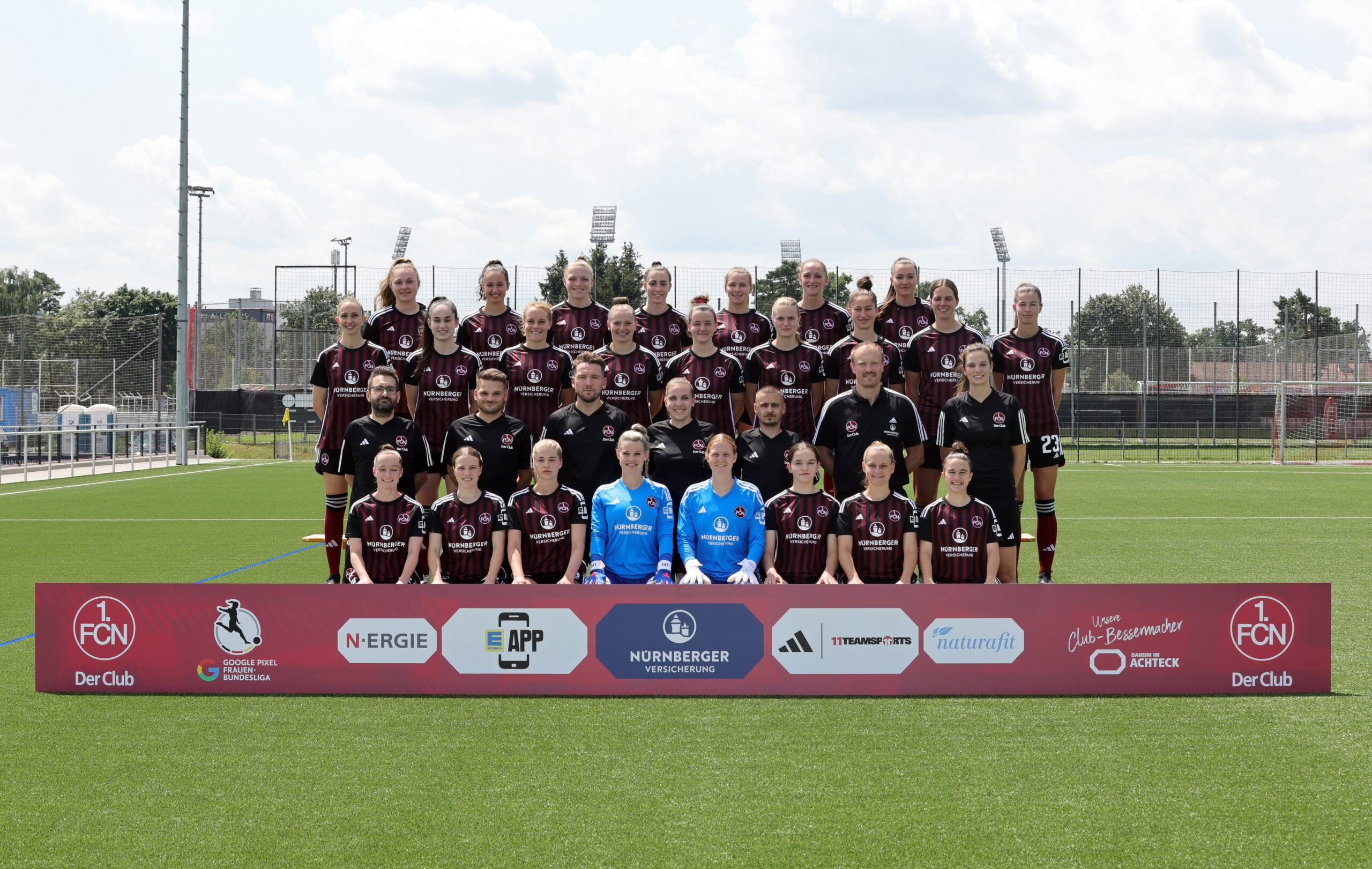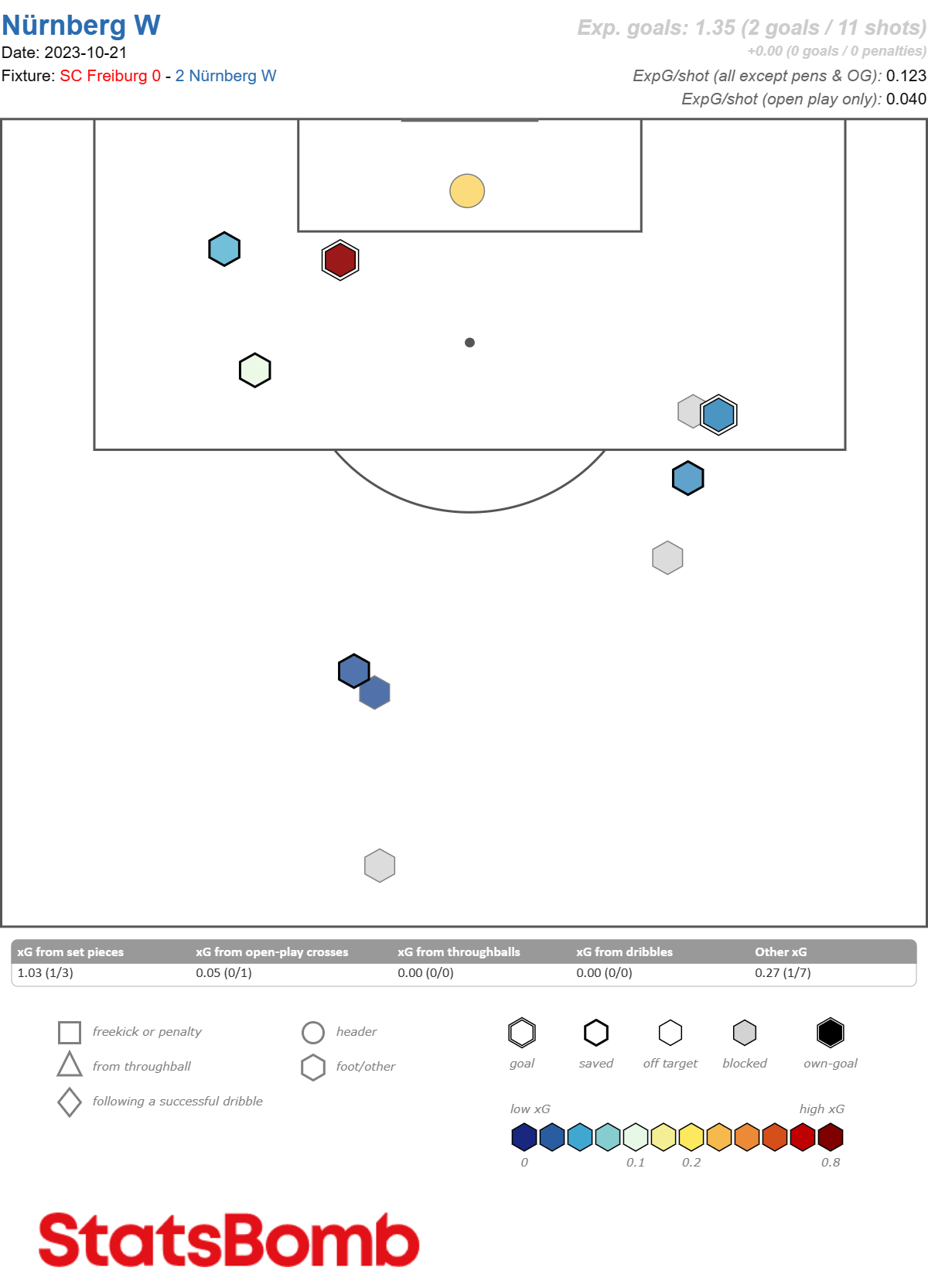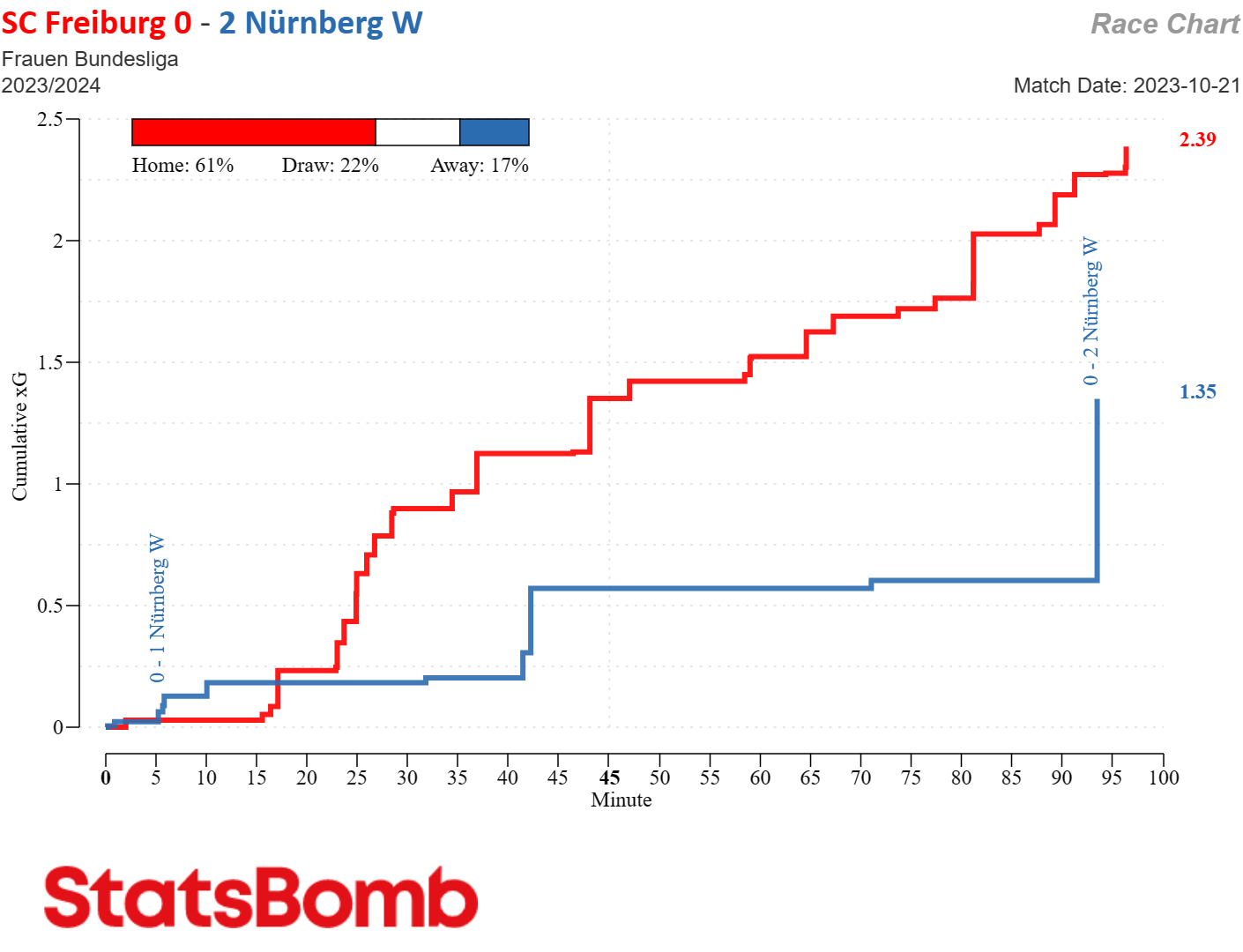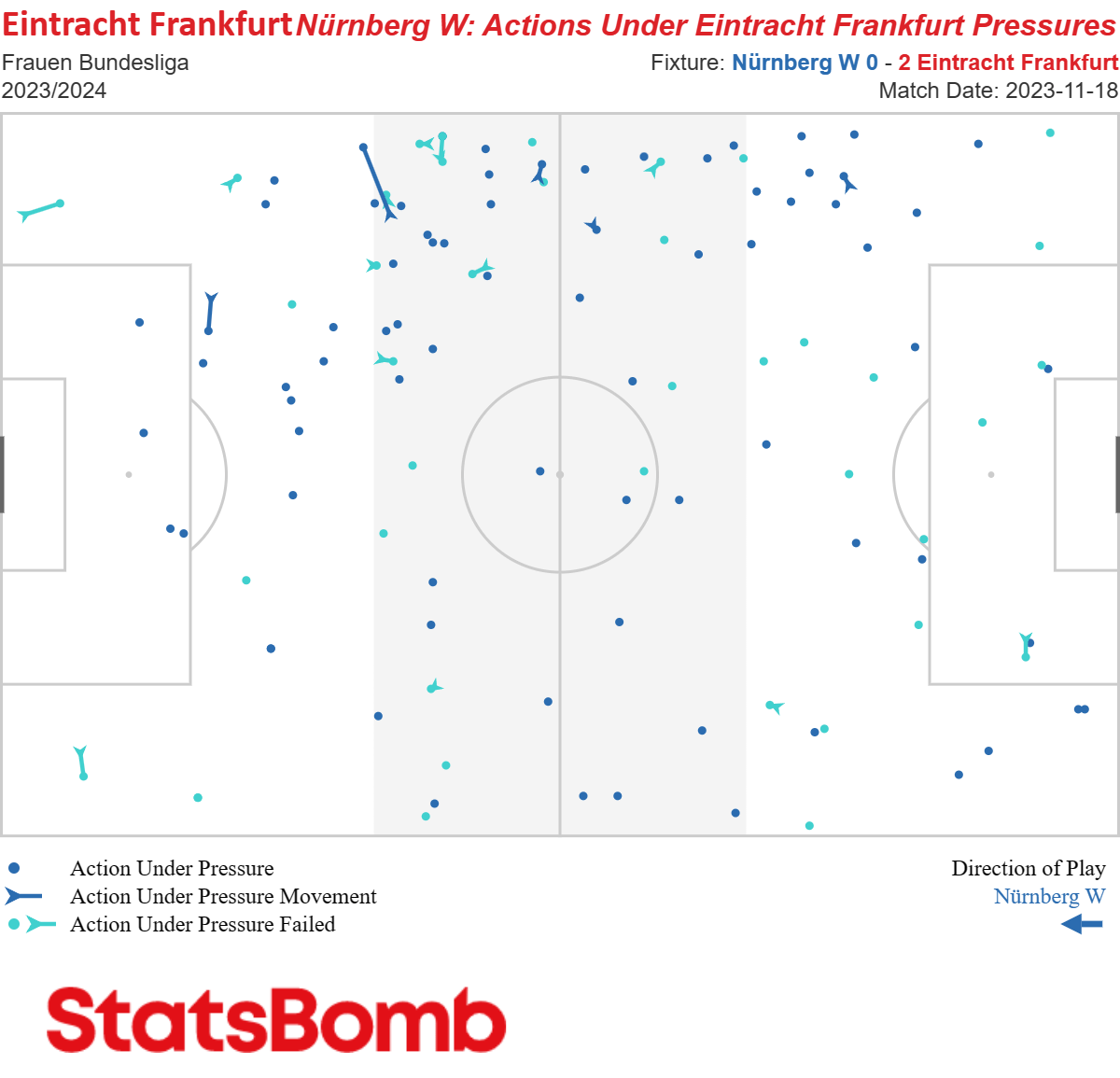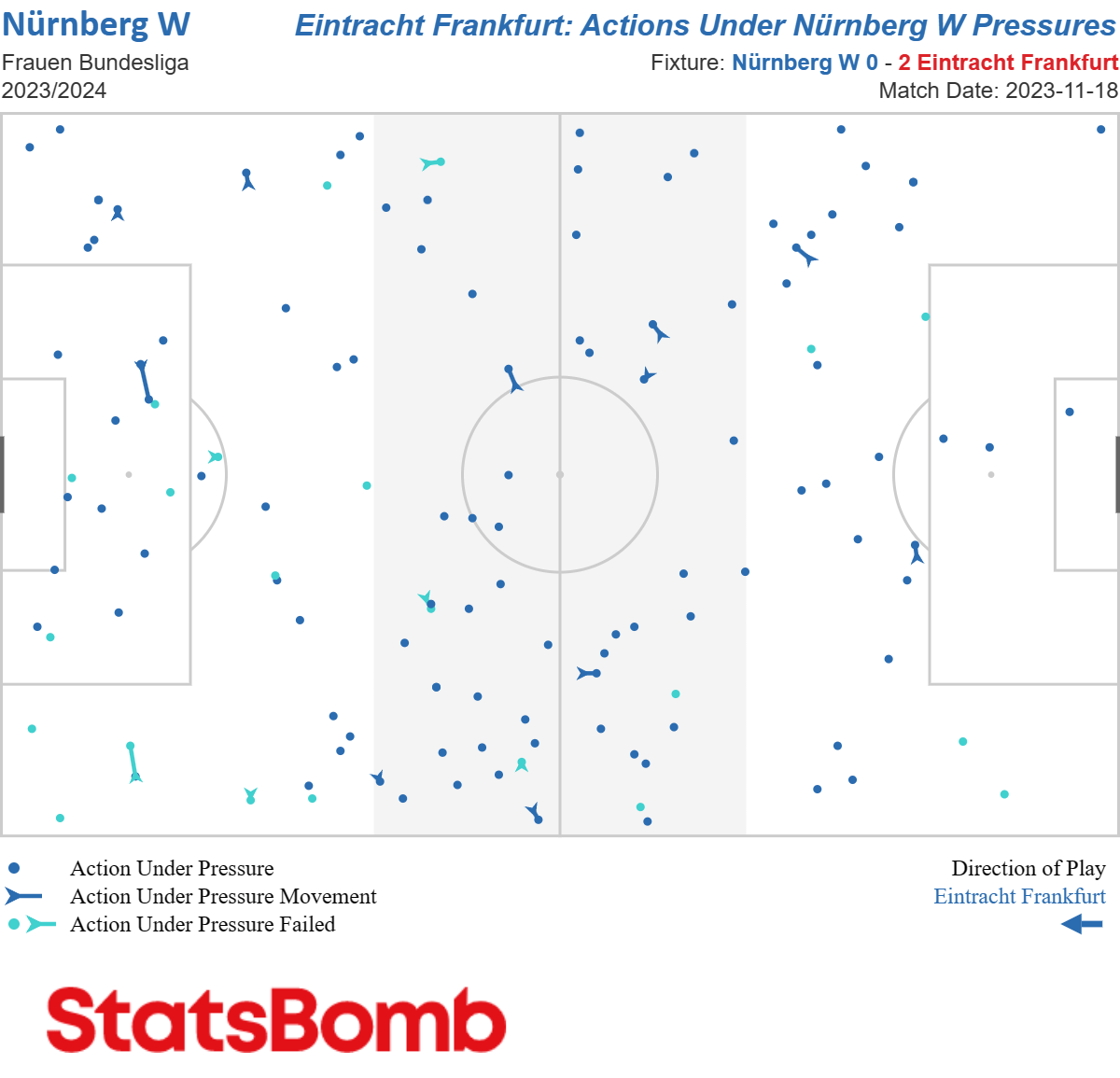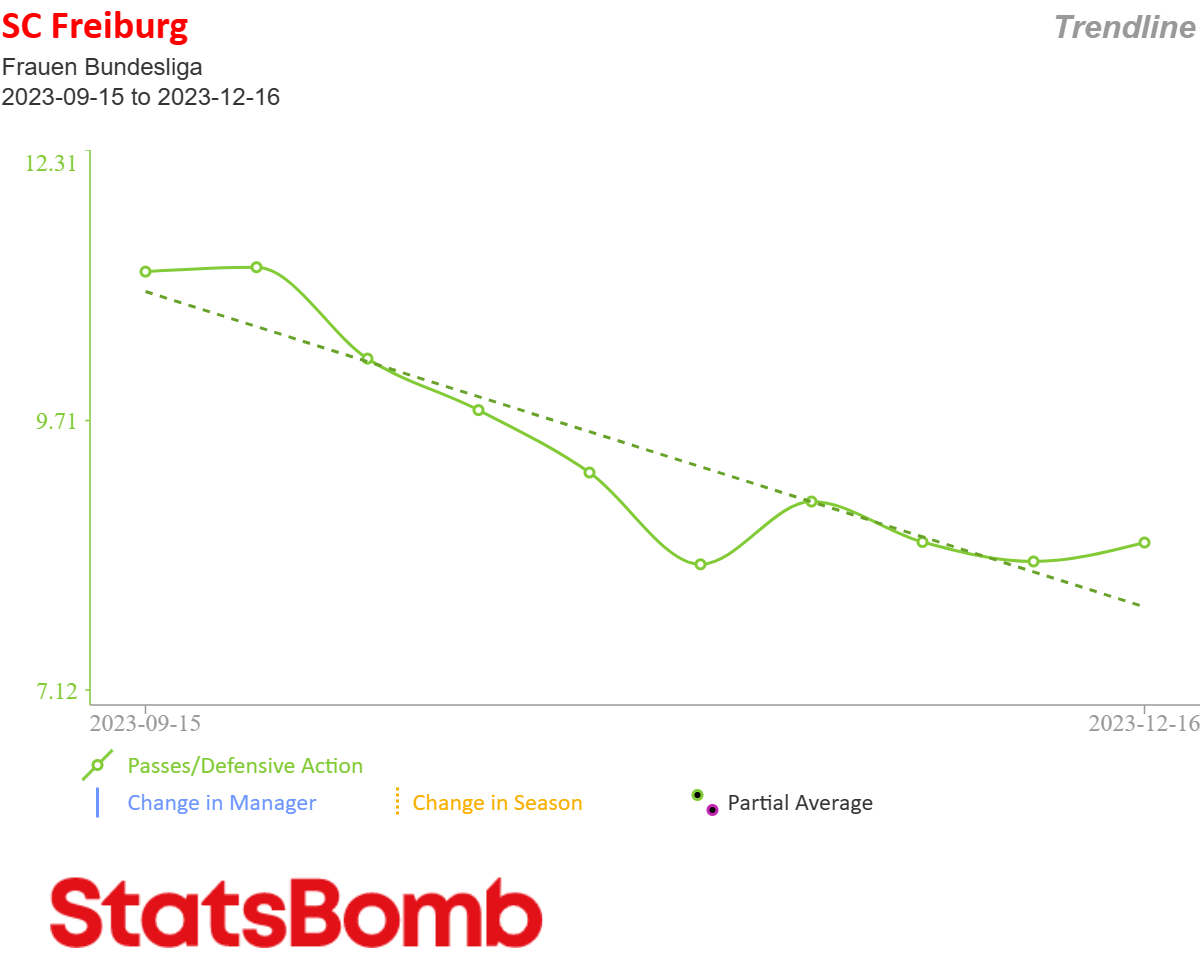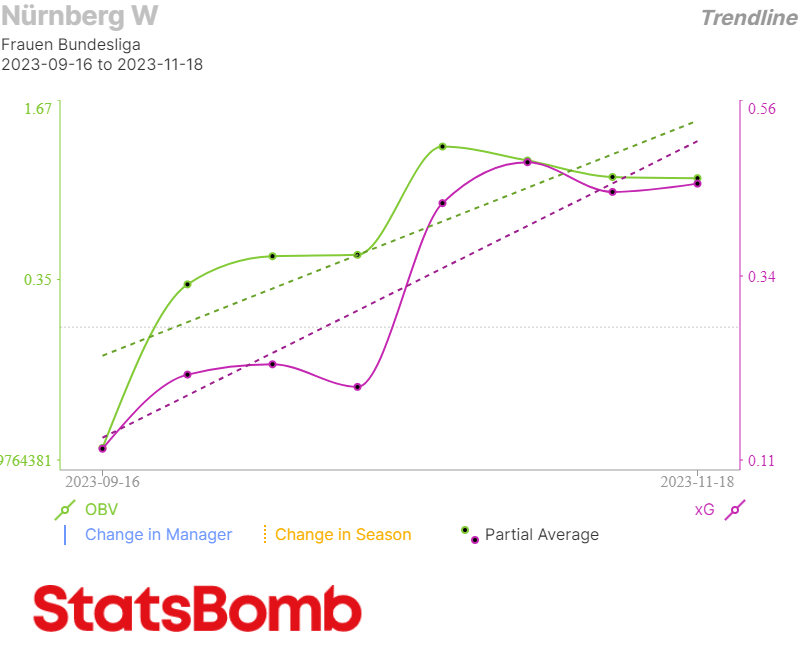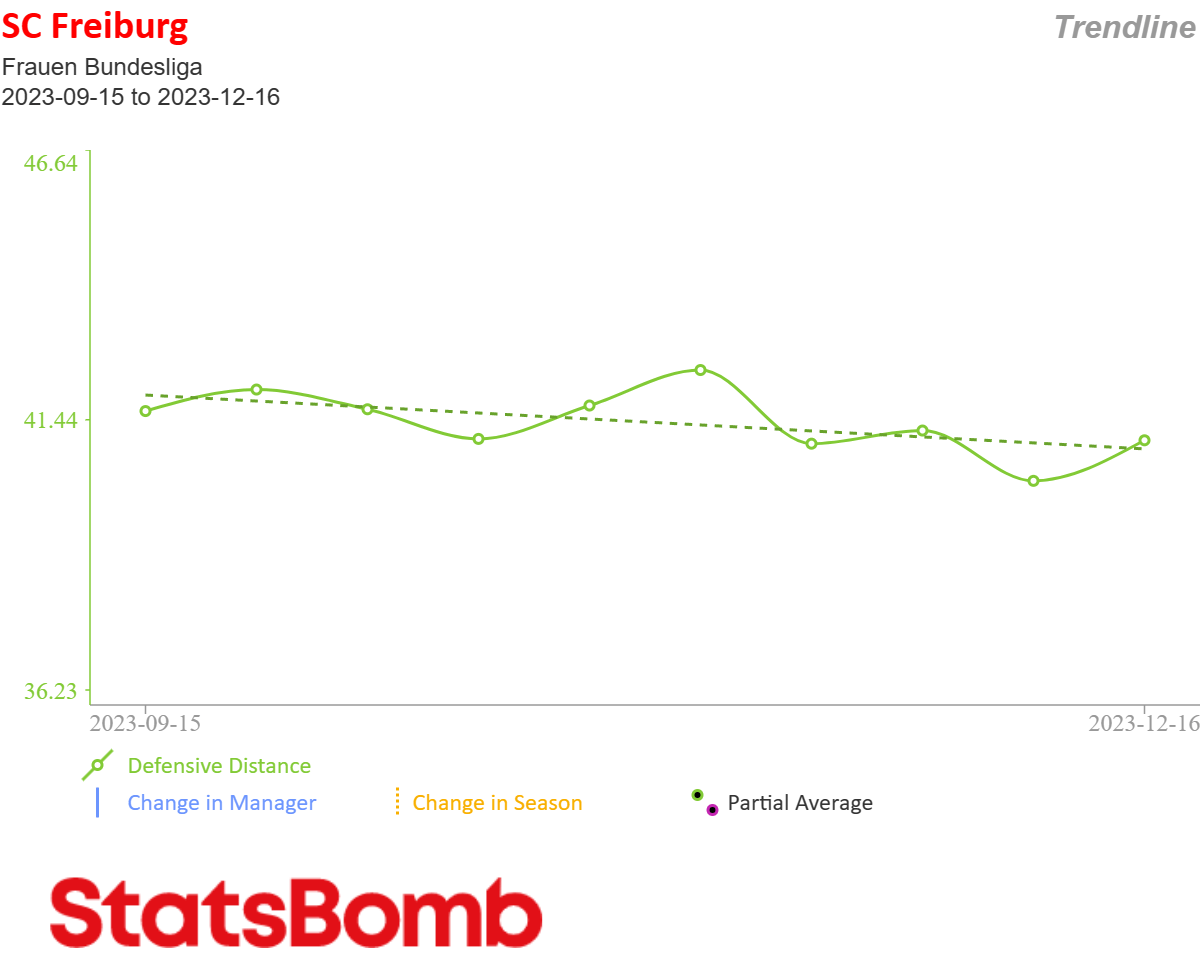In the span of just four years, 1.FC Nürnberg W has grown from a regional side playing on municipal pitches into a top flight club going head-to-head with the likes of Bayern Munich and Wolfsburg.
One of many women’s teams to have taken up the offer of free access to our advanced IQ analytics platform, 1.FC Nürnberg W has won back-to-back promotions and now finds itself halfway through a debut season in the Frauen-Bundesliga.
There are notable disparities within the league, particularly in terms of the facilities, infrastructure, and budgets available to the bigger teams. Nevertheless, the club’s goal is quite simple: to secure tenth in the table and a second season at the top.
We recently had the opportunity to speak with Florian Zenger, the Chief Scout and Analyst for 1.FC Nürnberg W, who joined the club two years ago and has played a crucial role in its rapid development. During our interview with Florian, we discussed the trajectory of the season thus far, his unwavering trust in data, and how he bridges the gap between analysis and on-field performance.
Dieser Artikel ist auch auf Deutsch verfügbar.
StatsBomb (SB): Do you notice a difference in data use between the first and second division?
Florian Zenger (FZ): I think the difference between the two divisions is really big. The level of play is just so much higher. We have actually begun work on founding the German Scouting Analysis Association because there’s no equivalent to the Professional Football Scouts Association like you have in England. Out of the 50 founding members, only about 10% have a background in women's football and the second division is hardly represented at all. So that tells you what you need to know.
To use the data that’s available, you have to be able to afford it. And when you look at infrastructure, some of these clubs simply don’t have analysts. There is no one apart from the coach and the assistant coach that could watch the videos. This has truly given us the edge coming up into the first division being able to use the IQ platform to prepare for our games.
(SB): What does a typical working week look like for you using data?
FZ: It starts as soon as I have the data from the previous match. I create a post match report that looks just like the race chart to look at chance creation and other insights like that.
I spend a lot of time looking ahead too. I create a pre-match report that looks at defensive structures. Then I’ll also look at our passing networks and passing directions so I can tell where we are creating the most threat from, I'll also then look at the opposition to see which areas the opposing teams lose the ball in most often, or if there are players that do well or don’t do well under pressure.
During the games I'm up in the stands, but at halftime I’m in the dressing room, sometimes showing videos. When we played against Frankfurt, who are third in the league, I told the coach we were equal on shots with them at halftime, and he told me to go into the dressing room and tell the players to give them confidence. The coaches sometimes rely on me for that.
We tend to look at On-Ball Value (OBV) as well, to value the contribution of our players and use it as a factor in assessing player performance.
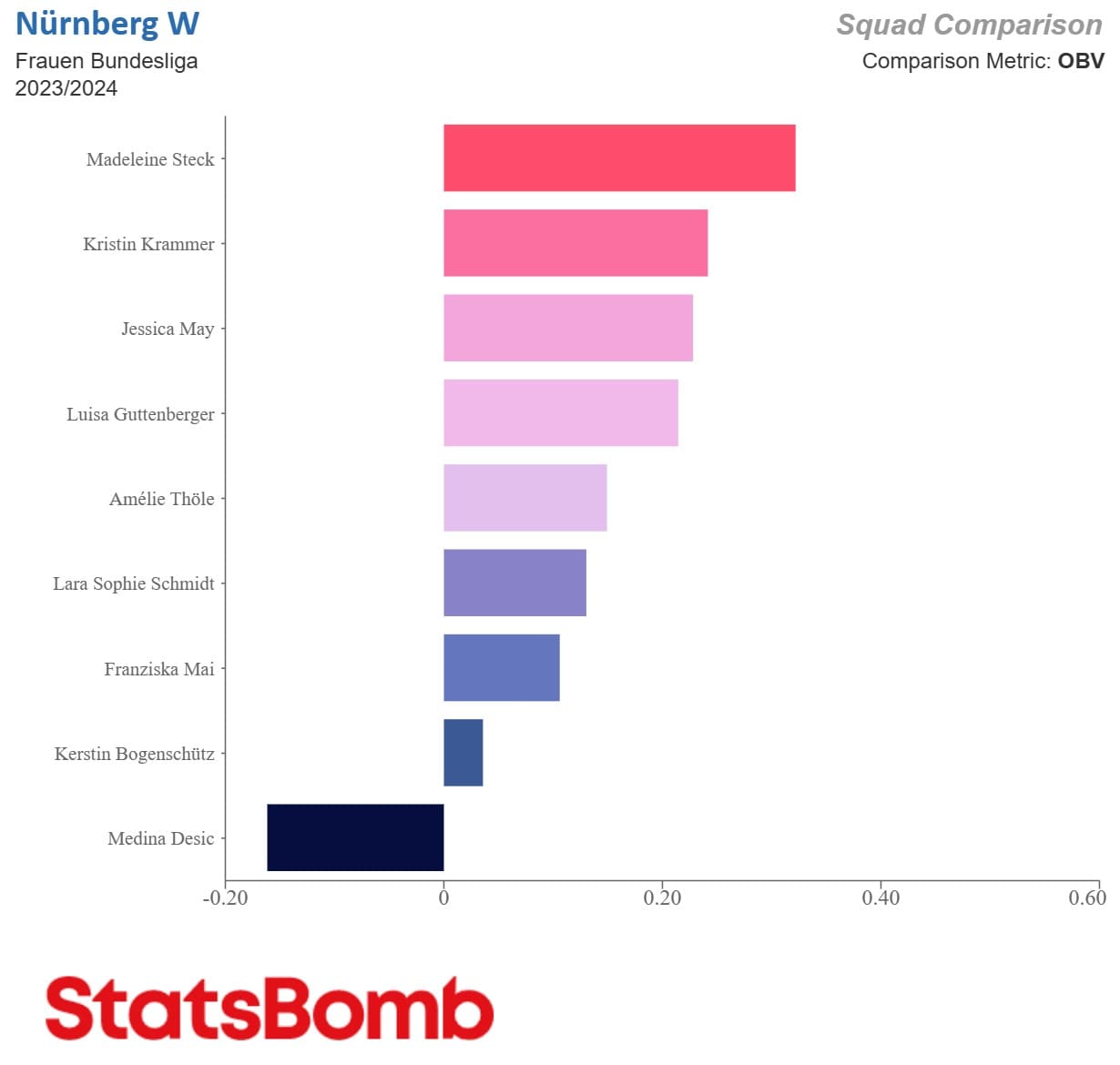
I also have players who ask for their own individual reports, including our captains Lara Schmidt and Jessica May, and our defensive midfielder Lulu Guttenberger. They want to be able to analyse their own data and statistics after the match - so I prepare those reports as well.
SB: Do you think that your confidence in data has rubbed off on the players?
FZ: The players value my opinion based on the data itself, and based on my experience working with data.
We won our first game of the season against Freiburg, and I had noticed beforehand that when the goalkeeper faced shots, her positioning was often off-centre. I talked to our goalkeeping coach and our goalkeeper and asked if there could be a reason why she was doing it, a reason I didn’t understand, but both said there was no reason at all, it was just bad positioning.
So, I went to the players and told them “Look at the shots this goalie has faced and look at her positioning, you can see she's always off, so just shoot as much as you can.”
That does something to the mind of the players, because they can capitalise on a weakness. This helps them gain confidence and see clearly that we have a plan.
SB: What is the connection between your coaching staff and the data?
FZ: I look at the sequences of open play and filter them to show the coaches, for example, if a team has a lot of shots from kick off or from throw-ins. They like to be aware of these things. I also come up with likely formations using data, looking at left and right footedness and pass percentages. I look to see if there are areas or certain players who play close to each other so I can adjust our pressing scheme. And that’s something they value.
Our head coach, Thomas Ostendorp, really values data. I can see in his pre-match talks how he uses data and our game planning often relies on it. When we played Frankfurt he asked me to find out which players on the opposition teams passing percentage dropped the most when under pressure. So we decided to nudge our pressing scheme in the direction of those players.
It’s my job to translate the data and teach it to the coaching staff. If I value a statistic and say it is important then I’ll be trusted. With OBV I just said - this is the player’s contribution to the success of a team. You don't need to understand how it's calculated. If a player has a negative passing OBV It means that their passes are more helpful for the opponent. Just think of it that way.
SB: What would you do if you didn't have StatsBomb?
FZ: If I didn’t have StatsBomb, I would have to work with the data we get from the German federation. They compile live event data that I can access while I’m in the stadium, but it’s not to the depth that I want or need it to be, and I have to say I wouldn’t be happy with it.
It's kind of difficult for me to say because I grew up on StatsBomb data, it was always the gold standard for me. The first thing I actually said to the Sporting Director when I went into the club was “I want to be promoted because I want to use StatsBomb’s data”. So… I started talking about StatsBomb’s data and saying, look at this, it works.
I also started to talk to the men's side about what data they were going to be using from StatsBomb and what leagues they wanted covering. So there’s a feedback loop between us. If I had the money I would buy all the leagues. But that’s not my decision to make.
SB: Can you share with us any metrics or visualisations that show success you've seen with our data?
FZ: We've increased our defensive distance and decreased our PPDA this season.
We looked at the data and said we need to be more aggressive and we need to provide more pressure in relation to opposition possession. And you can see that in the trend lines already.
You can also see the small adjustments we’ve had to make, because getting into this league was really difficult. We conceded 11 goals in the first two matches, and from then on, we were competitive.
The jump in quality is so large that it's tough, but we're getting to the point where we can at least compete and get points on a good day.
SB: How do you see the rest of the season going?
FZ: The more data points you can collate, the more you can tell about your opposition. The advantage only grows if the data accumulates. We’ll have an edge, will it help us stay up? I don’t know. But all these developments wouldn’t have happened without the data.
Even if it's not enough in the end, I would say it helped the team along. It helped the team grow. It helped tactical decisions. It's something that actually everybody should do. But if everybody did it, then we wouldn't have an edge.
At StatsBomb, we are dedicated to supporting women's teams by providing bespoke research of the women's game, open data releases, and free access to our advanced IQ analytics platform.
If you are a club, media outlet, player agency or gambling organisation that wants to know more about what we can do for you, contact us to learn more about our products.
Alternatively, If you are a current StatsBomb customer and you would like to complete a case study with our marketing team, please get in touch with us.
